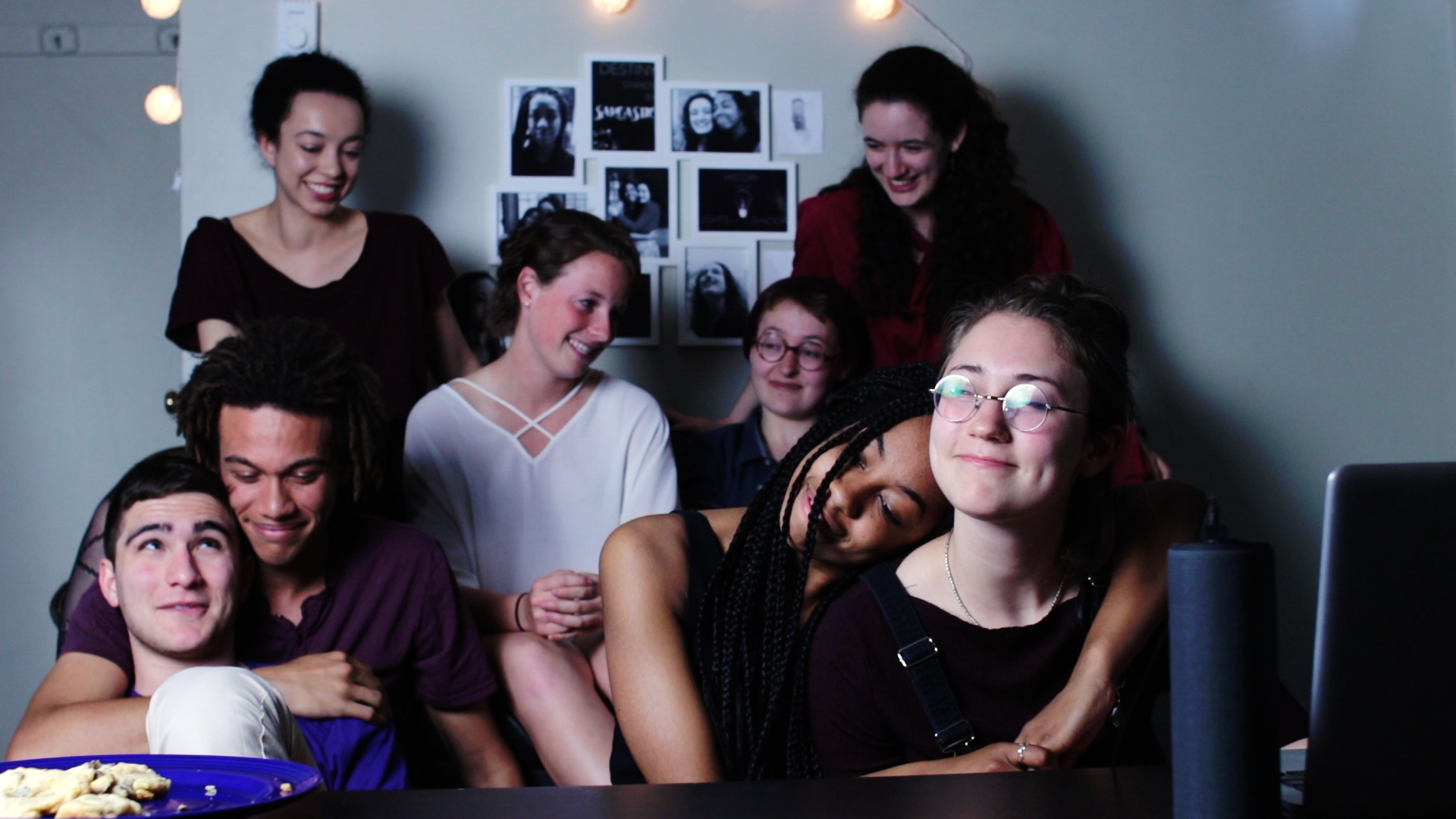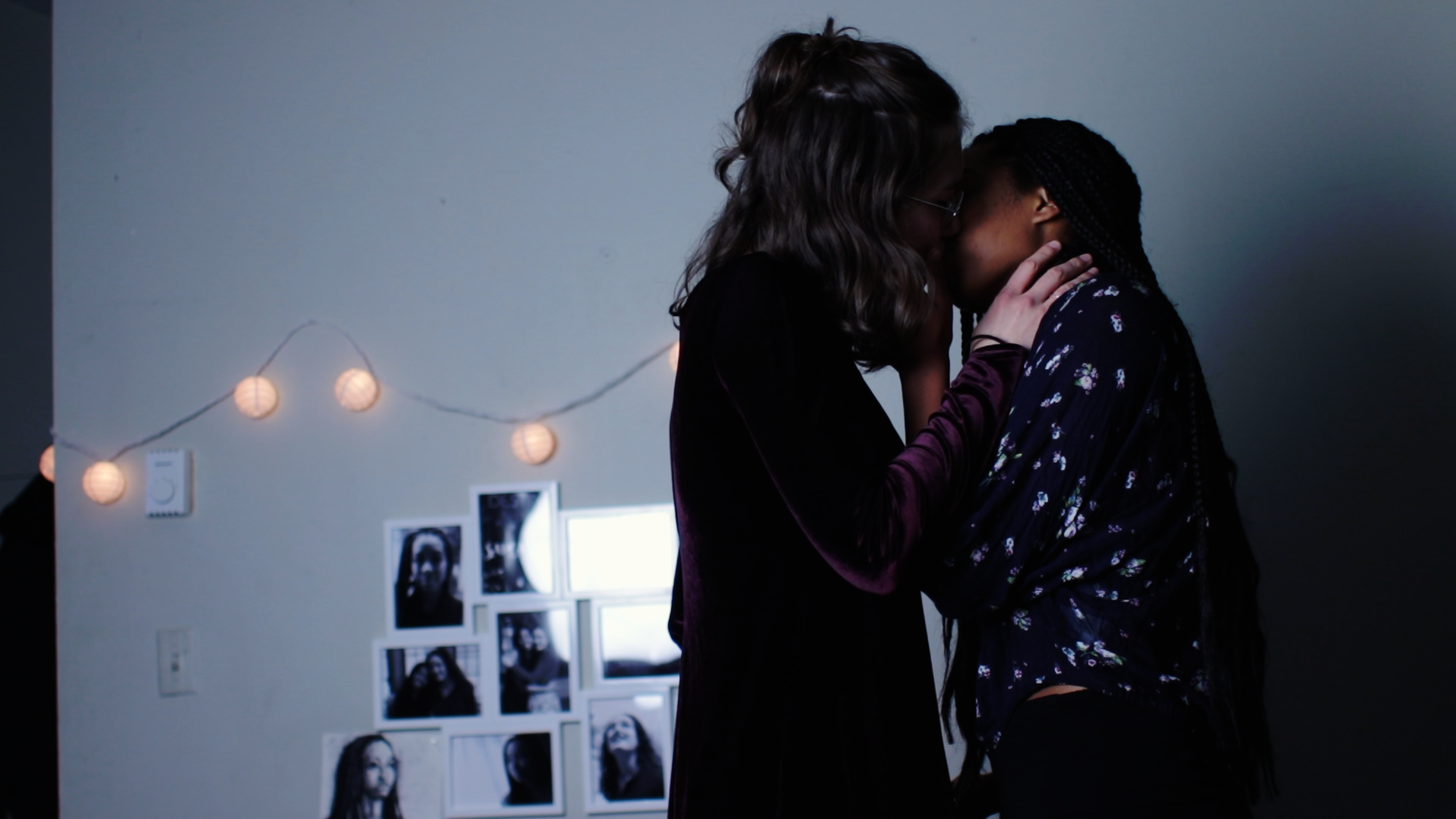The history of literature is much more queer than your English teachers let on. Shakespeare’s gayness is still glossed over or purposely omitted from textbooks. Homer’s Iliad has been censored since ancient times, with screenwriters still playing down the homosexual relationship between “cousins” Achilles and Patroclus. Possibly-lesbian correspondence was equally suppressed — none of Ellen Nussey’s romantic letters to Charlotte Brontë survive, while Brontë’s 1854 letter to Nussey begs her to burn it after reading. Yale undergrad Rebecca Shoptaw is tackling this erasure of LGBTQ history head-on by adapting classic works into progressive web series. Her opus is the unabashedly queer Middlemarch, which sees George Eliot’s self-described study of Victorian provincial life recreated in a 2017 Connecticut college dorm.
The ambitious 70-episode reimagining takes the form of a vlog filmed mostly by Dot Brooke (Mia Fowler) — a black bisexual Dorothea who forms a romantic relationship with another girl. “Gay disaster” Fred Vincy — rather than making questionable horse purchases as in the original — screws up a cake so spectacularly that he breaks his friend’s microwave and almost sets fire to the house.
Middlemarch is Rebecca’s favorite novel, and she sees some of herself in Eliot. The author (real name Mary Anne or Marian Evans) adopted a male pen name to write her fiction, and is thought to have had passionate relationships with women when she was young. Rebecca sees the web series format as a way to increase LGBTQ representation on screen. But with great power comes great responsibility. “Since there’s no one telling us what we can and can’t do, we don’t have any excuse not to represent,” she says. “I’m excited to see future series continue to push further and think harder about what LGBTQ+ representation could look like on the small screen.”

What were you most drawn to when you first read Middlemarch ?
I think something that really struck me when I read Middlemarch for the first time was the way that the novel’s narrator weaves together all the different storylines to make broader points about human nature. One of those points that was especially powerful for me personally was the novel’s appreciation of the ordinary, the beautiful way with which it insists on telling unimportant stories. I feel like this especially resonates in college, where the pressure to change the world, or to be important, or just to be in some way extraordinary is so strong.
I think the other main reason I loved the novel so much was the way in which two of its central relationships (Will/Dorothea and Fred/Mary) refused to fall into the heavily gendered tropes and power dynamics of Victorian courtship. This made the gender-bending of several central characters effortless, which is, more than anything, what made the adaptation possible.
Can you describe the casting process? What were you looking for in actors?
I actually did the casting through our undergraduate theater organization. When people came in to audition, the two things that I told them mattered the most to me acting-wise were realism and subtlety. Most of the people auditioning were coming in with theater backgrounds, so it was very important that they acted like a person talking to a camera instead of an actor on a stage, so that someone watching could potentially believe that it was an actual video blog. Also, much of the drama of the series comes through in what isn’t said, in awkward pauses or quiet implications, so I wanted to cast people who could convey what was going on emotionally beneath the text.
The characters even have their own Twitter accounts in the real world. Why did you feel this was important?
In-world social media, or “transmedia,” has been a staple of literary-inspired web series starting with The Lizzie Bennet Diaries in 2012. It really highlights something that web series as a medium can do that TV and traditional media mostly can’t. Transmedia allows for back-and-forth interaction with the characters, and even without direct interaction, lets the characters become interwoven with the rest of a person’s real-world social media feed, adding again to the sense of the reality of the world.
Before Middlemarch started airing, I’d encountered a lot of examples of incredible uses of transmedia – especially in Away From It All (an adaptation of Thomas Hardy’s Far From the Madding Crowd) – and knew that I wanted to find a way to incorporate transmedia into the series. This was a little tricky to do because the series takes place in retrospect (the videos air six months after the events of the story), so I couldn’t let events unfold in real-time on social media like other series do. But I actually ended up having a lot of fun using social media to have characters react to watching the show as it aired and also answer audience questions. Fred and Max did a Q&A on Twitter, Billie posted some of her poetry on her Tumblr, and Fred produced a couple truly terrible drawings in answer to a viewer’s question on his Tumblr.
George Eliot didn’t like the constraints imposed upon women’s writing, and used a male pen name to ensure her work would be taken seriously. Do you relate to that?
Definitely. I think that it’s always really difficult to get taken seriously as a female director, both because of external pressures, and because of what you can internalize from what you hear. When every “cinematic genius” you hear about or learn about is a straight white guy — and often one who is praised for how “difficult” he is — it’s hard to feel like there’s a place for you in the world of film.
There is an interesting result of this that me and a few of my friends have noticed. Some young white guy filmmakers make films because they can and don’t worry too much about “the point” of the film. The sense of not fitting into the film world that we feel [as women] gives a lot of us a constant need to prove ourselves, to explain why this thing we want to make is worth making, and because of that, we often end up making art that we know how to talk about and that we feel is really worthwhile.
How do you feel about the current state of LGBTQ representation on screen? Are web series a way to circumvent straight-washing of TV?
Absolutely! I could go on for hours about the ways in which representation of LGBTQ+ people on TV is improving but still has a really long way to go. With web series, there are no rules: we don’t have to go back and forth with a production company to get an okay to make more representative media, which gives us both an opportunity to create better representation and a responsibility to represent well.
You have also reinterpreted Shakespeare’s Sonnet 23 as an LGBTQ narrative. What intrigued you about that story?
I think that a lot of my work stems from my frustration with the absence of or erasure of LGBTQ+ histories – pages torn out of diaries, poems destroyed before publication, sexualities conveniently left out of history textbooks, etc. I often find myself wishing for that whole world of LGBTQ+ images and stories and poems and films that should exist. When I catch myself feeling this way, I try to channel that frustration into making these films that, bit by bit, try to help fill up that gap.
With Sonnet 23, I engaged that erasure of LGBTQ+ history especially directly. Here, I gathered up every pang I’d felt when I was told in class that Shakespeare’s sexuality was “not relevant” or worse, “ambiguous,” or that a sonnet that straight people read at their weddings, when you bring up the gender of the recipient, might just be written to a “male friend” or “colleague.” I took all of that and used this little film to write back into the sonnet the unambiguous LGBTQ+ love story that was always already there.
The series is inspiring reading groups, which is really cool and shows that reading and watching are not mutually exclusive. Was this surprising to you? Have you had any other feedback that stands out?
It was definitely a pleasant surprise! I’ve found for myself that reading the source text always makes watching the adaptation more fun because it allows you to appreciate the adaptation choices that the series made and pick up on all the little references. That said, I didn’t really expect anyone watching the series to go read a 900-page novel, but I’m so glad people have. Middlemarch is far and away my favorite novel, and it makes me immensely happy both to help the novel reach people who might otherwise not have read it, and to get the spirit of the novel and hopefully some of its moral lessons out to a broader audience in the form of this web series
Watch Middlemarch here.
